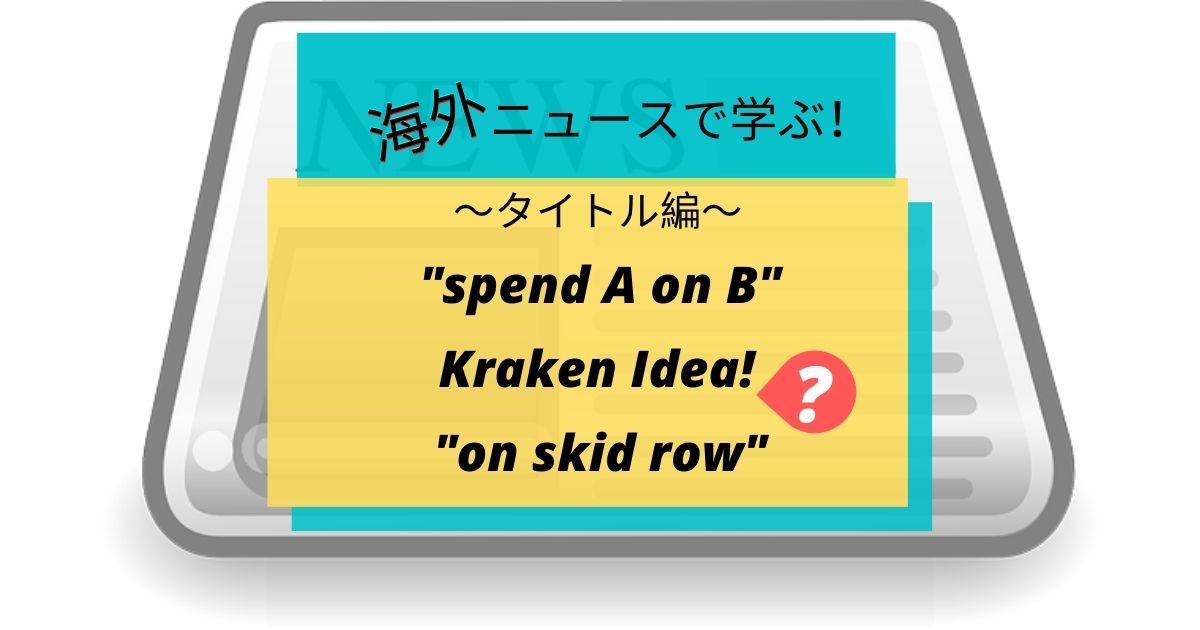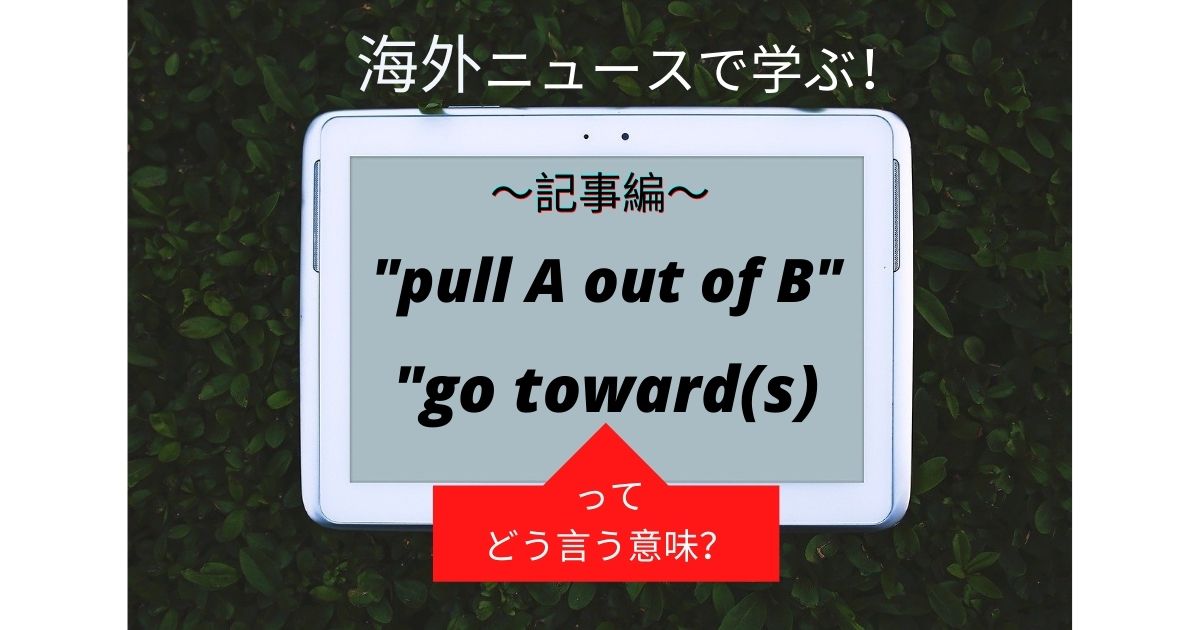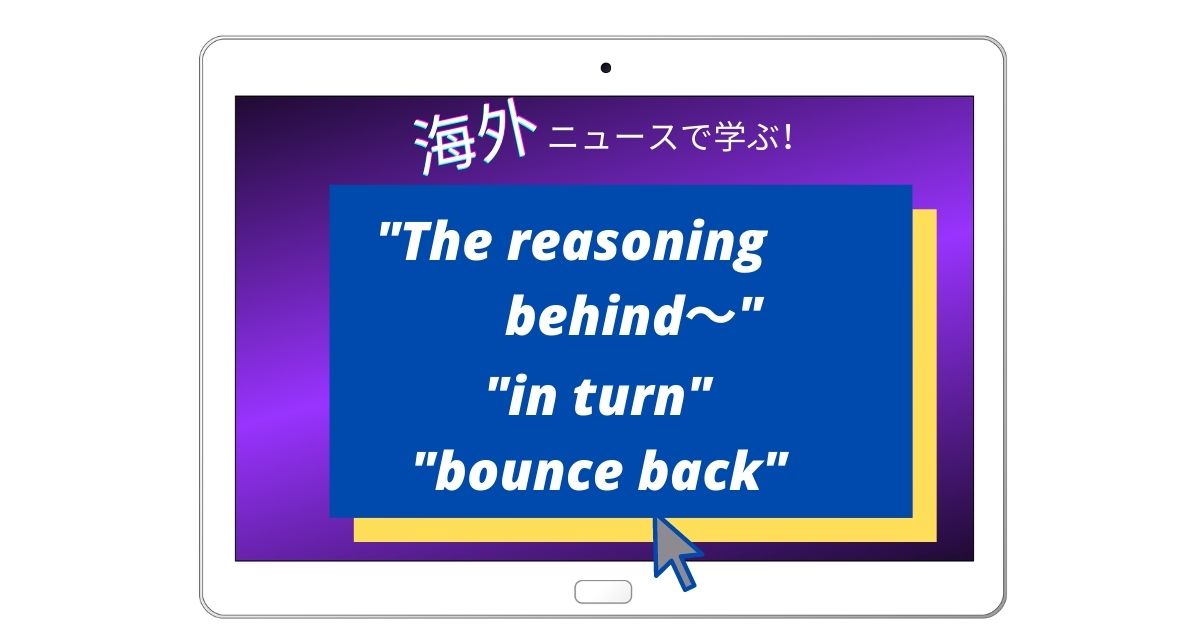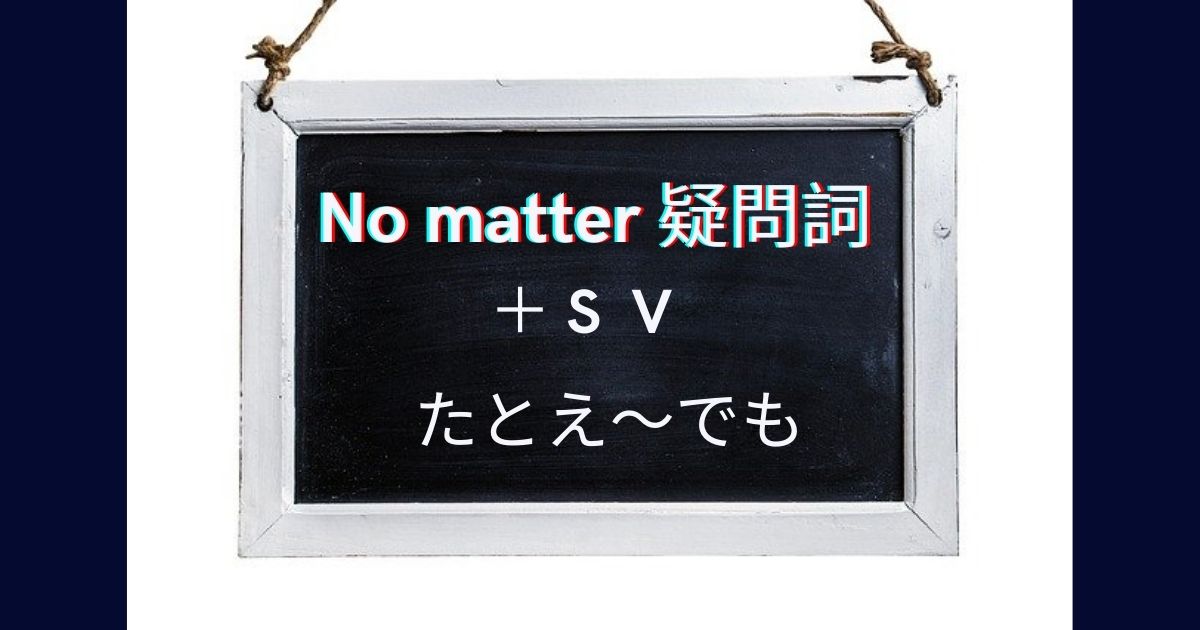引き続き「コロナ交付金で作られた巨大イカ像」の記事から学ぶ熟語の紹介です。
この記事では⑤番目と⑥番目、⑦番目の熟語、
⑤the reasoning behind 〜
「〜の背後にある論拠には」
⑥in turn
「次には、その結果」
⑦bounce back
「回復する、持ち直す」
を取り上げます。
これまでの”巨大イカ像” 関連記事で
「英語タイトルから学ぶ熟語や比喩表現」の記事はこちらをどうぞ。

同じく関連記事で紹介した熟語
①pull A out of B
(AをBから救出する、抜け出す)
②go toward(s)〜
(〜に使われる)
の記事はこちらをどうぞ。

③ be spent on 〜
「〜に費やされる」
④ be famous for 所有格+普通名詞
「〜で有名です」
の記事はこちらをどうぞ。


それでは早速本文をみていきます。
前回の記事同様、
「Kraken idea : Stimulus cash ends on squid row.」
(訳)モンスター案:景気刺激金は浪費に終わる。
の本文記事を参考にします。

下の記事を読むよ。
Noto received some 800 million yen (about $9.4 million) to help ①pull it out of an economic slump.
Part of that money ②went towards building a statue of a giant squid, to display prominently in the town.
Sure, less than $400,000 ③was spent on building the four-metre high statue – but it’s still raised some questions about the ‘best use of government money’.
The town of Noto④ is famous for its flying squid, considered an edible delicacy. So ⑤the reasoning behind the statue is that it’ll be a tourism drawcard and raise the profile of the town’s fishing industry,⑥ in turn helping the area⑦ bounce back economically.
The government funding didn’t have specifics attached to how it must be spent, so Noto has exercised ⑧a bit of a loophole here.
But some people say it’s a fishy exercise.
One local told the area news outlet Chunichi Shimbun the money should have been directed at “urgent relief” like medical staff and long-term care facilities.
“⑨No matter how you look at it, this is wrong. They have to return that money,” one Twitter user said.
Japan is due to host the postponed Olympic Games in July to August.
では熟語⑤⑥⑦を見ていきます。
⑤the reasoning behind (something)
該当箇所の音声を再度聞いて下さい。

the reasoning behind (something):〜の背後にある論法(論拠、根拠)には
と言う意味の熟語です。
ここでポイント!
「the reason behind 〜」との違いは?
「The reason behind〜」もよく見かけるフレーズです。
さて「The reasoning behind 〜」との違いは何なのでしょうか?
名詞の意味からして微妙に違うのです。
元々の名詞の意味は
reason:(〜する)理由
reasoning:論法、議論の道筋
つまりこれら熟語の問う焦点は
the reason behind 〜:(〜の)背後の具体的な理由。
the reasoning behind 〜:(〜の)背後の理由を作りだす論拠(根拠)。
さてまた夫の出番です。
分かりやすく例を挙げてもらいます。

例)The reason behind selling land is I need money to pay to move into a nursing home.
土地を売る背後にある理由は老人ホームに入居する為に支払うお金が必要だからです。
→具体的な理由を述べている。
例)The reasoning behind selling land is it will be to pay for my health care in the future, otherwise I can’t afford it.
土地を売る背後にある論拠はそれが将来の私の健康管理の為の費用となりさもなければ支払えないのです。
→土地を売る理由を作り出した根拠を述べている。
この記事は、巨大イカ像の背後にあるその理由に至るまでの論拠を記事内容にしているので
”the reasoning behind 〜”の熟語が使われたんですね。
⑥in tern ⑦bounce back
”in turn”の意味
次は⑥番目の熟語です。
そもそも「turn」の名詞の意味は「順番、番」。
よく登場するシーンで

Who’s next?(次は誰?)

It’s my turn!(私の番です!)
と言う台詞があります。
この名詞の「順番」と言う意味が基本。
さて今回の記事で登場したのは「in turn」と言う熟語。
大きく分けて2つの主な意味があります。
①順々に、次々に
例)He spoke to each of the guests in turn.
彼は順々にゲストたちと話をした。
②(定められた順序で)次に、今度は、その結果
例)Stress causes your body to release chemicals, which in turn
boost blood pressure.
ストレスは体に化学物質を放出させそれが今度は血圧を上昇させます。
引用:Cambridge dictionary”
今回の巨大イカ像記事で使われた意味に当たるのは②です。
まず〇〇があり(起こり)次に(今度は、続いて、その結果)△△がくる。(起こる)
と言うイメージです。
さて、質問!

①の意味の「順々に、次々に」の対象人物が2人の場合で同じ事が繰り返される時に「交互に」と訳す?
例えば。。。
”The two sisters nursed their mother in turn.”
(研究者和英辞典)
って例文があったけど。。。

もし2人の間で”交互に”何かをするのであれば ”take turns“ の方が使われるよ。
”The two sisters took turns nursing their mother.”
例えば他に
Let’s take turns at driving.
(交互に運転しよう!)
” bounce back”の意味
では続いて⑦番目の熟語です。
「bounce back」の意味
◆(ショックなどから)すぐ立ち直る,回復する
例)He’s had a lot of problems, but he always seems to bounce back pretty quickly.
彼はたくさんの問題を抱えているけどいつもかなり早く立ち直るようだ。
例文引用:Oxford Learner’s dictionaries
◆〈景気などが〉持ち直す
例)The airline’s shares have bounced back from two days of heavy losses.
航空会社の株式は、2日間の大きな損失から持ち直しました。
例文引用:Oxford Learner’s dictionaries

“recover”と同じ意味だね。
他にもよく見かけるセリフの意味はこれ!
見出し2⑤〜⑦番まで通しで復習!
では意味を理解したところで再度文章を復習します。
次回は最終編、
⑧番目 ” a bit of 〜(名詞) “
「少しの〜」
⑨番目 ” No matter how〜“
「どんなに〜であろうとも」
を取り上げます。



